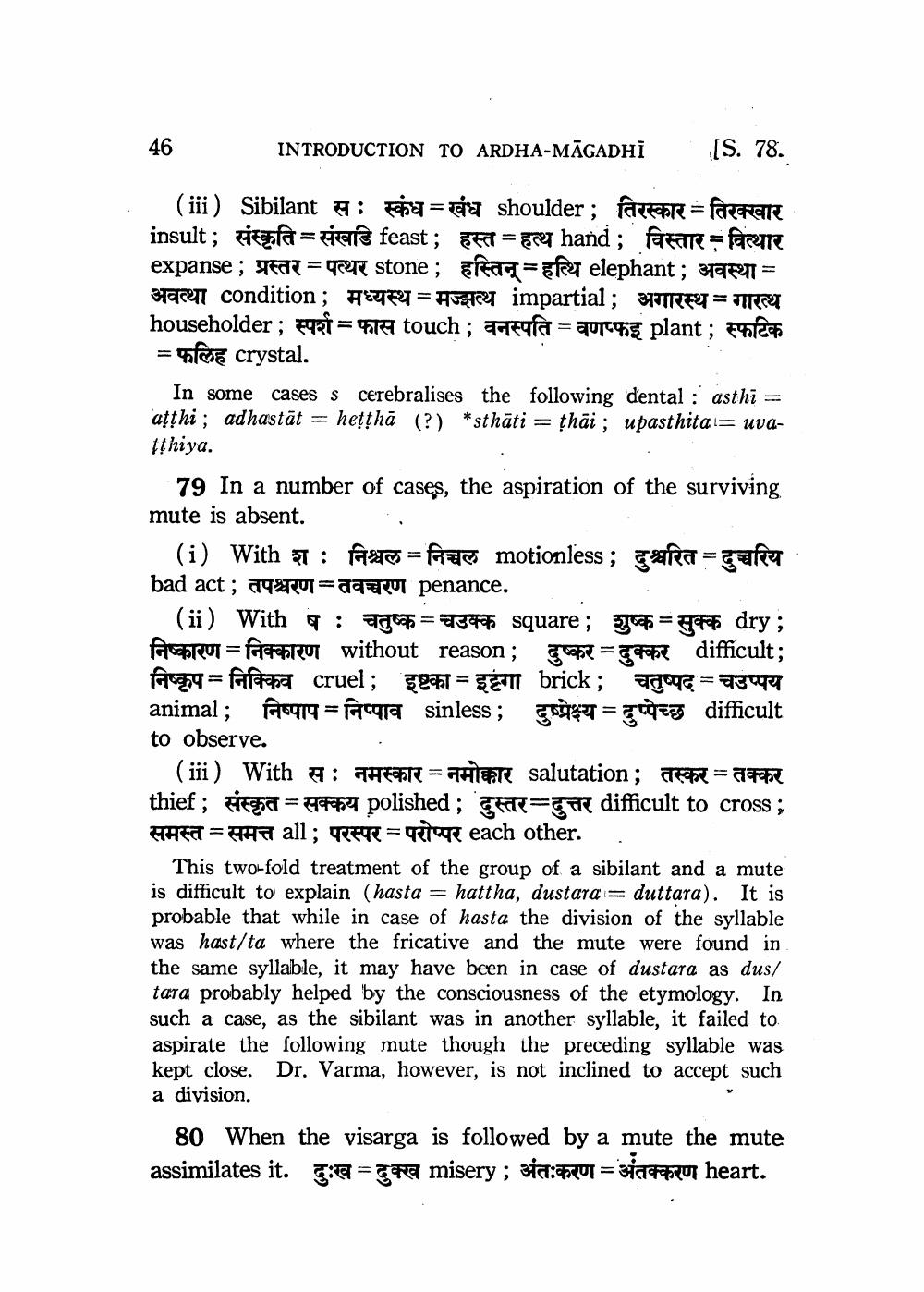________________
46
INTRODUCTION TO ARDHA-MĀGADHI
[S. 78.
(iii) Sibilant स: स्कंध =खंध shoulder; तिरस्कार = तिरक्खार insult ; संस्कृति संखडि feast; हस्त = हत्थ hand ; विस्तार वित्थार expanse; प्रस्तर = पत्थर stone; हस्तिन् = हत्थि elephant; अवस्था = अवत्था condition; मध्यस्थमज्झत्थ impartial; अगारस्थ = गारस्थ householder ; स्पर्श = फास touch; वनस्पति = वणप्फइ plant ; स्फटिक = फलिह crystal.
In some cases s cerebralises the following dental : asthi = atthi%; adhastāt = hettha (?) *sthati = thai%; upasthital= uvaIthiya.
79 In a number of cases, the aspiration of the surviving mute is absent.
(i) With श : निश्चल = निच्चल motionless ; दुश्चरित = दुच्चरिय bad act; तपश्चरण=तवच्चरण penance. __ (ii) With ष : चतुष्क = चउक्क square ; शुष्क =सुक्क dry; निष्कारण = निक्कारण without reason; दुष्कर =दुक्कर difficult; निष्कृप= निक्किव cruel; इष्टका = इदगा brick ; चतुष्पद = चउप्पय animal; निष्पाप = निप्पाव sinless; दुष्प्रेक्ष्य = दुप्पेच्छ difficult to observe.
(iii) With स : नमस्कार = नमोक्कार salutation; तस्कर - तक्कर thief ; संस्कृत = सक्कय polished ; दुस्तर-दुत्तर difficult to cross; समस्त =समत्त all; परस्पर परोप्पर each other. .
This two-fold treatment of the group of a sibilant and a mute is difficult to explain (hasta = hattha, dustara = duttara). It is probable that while in case of hasta the division of the syllable was hast/ta where the fricative and the mute were found in the same syllable, it may have been in case of dustara as dus/ tara probably helped by the consciousness of the etymology. In such a case, as the sibilant was in another syllable, it failed to aspirate the following mute though the preceding syllable was kept close. Dr. Varma, however, is not inclined to accept such a division.
80 When the visarga is followed by a mute the mute assimilates it. दुःख = दुक्ख misery; अंत:करण = अंतक्करण heart.




